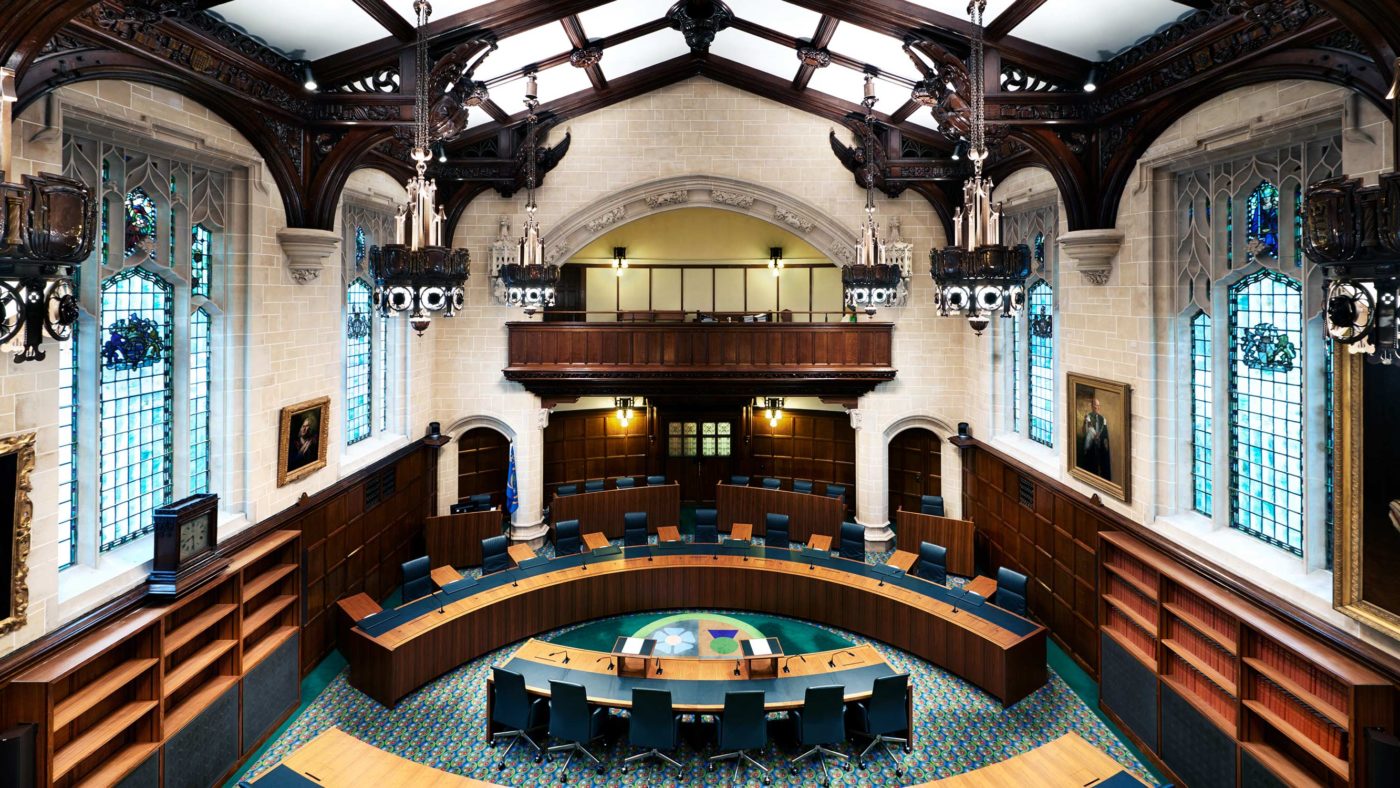The Conservatives’ announcement that they want to replace the Human Rights Act with a ‘British Bill of Rights’ has a decidedly retro feel. This is an old-school, pre-Brexit Tory policy. It does not even feature in the party’s 2019 manifesto.
Of course, there could be any number of reasons for that. But I suggest that one is simply that right-wing thinking on constitutional questions such as this is a lot more developed than it was in David Cameron’s day. The former Prime Minister was big on eye-catching reforms, such as his mooted ‘Sovereignty Bill’, which do nothing to address the underlying problems.
As one who has written extensively about the Conservative constitutional reform battle, I share the concerns of many of those involved that dusting off this Noughties relic will do more harm than good.
The fundamental concerns driving the change are legitimate. Writing on CapX today, Lee Rotherham sketched out the tension between our traditional ‘political constitution’ and the emerging post-democratic alternative, which sees an ever-expanding body of rights and entitlements enforced by judges in response to cases brought by activist lawyers.
But whilst sharing his view of the very limited practical benefits of Dominic Raab’s proposals, I take a very different view of what the likely consequences will be of their failure to deliver.
Far from ‘exposing the deceit’, it will actually entrench it with a fresh dose of patriotic paint and Tory culpability. Instead of being able to blame ‘the Human Rights Act’, and New Labour, the problems flowing from the new legislation will be pinned on the ‘British Bill of Rights’ passed by a Conservative government.
Having made such a song and dance of the reforms, ministers will have to either admit that they over-hyped a set of very minimal changes or pretend they delivered meaningful reform by downplaying the ongoing problem of human rights legislation. Guess which one they’re likely to choose.
Worse still, this change might actually give more licence to judicial freelancing than the current arrangements.
This might sound counter-intuitive, but bear with me. Recall that no domestic legislation is going to ‘deal with’ problematic Strasbourg judgments. The only way to permanently effect that, as Lee acknowledges, is to withdraw from the European Convention on Human Rights, or secure high-level change to it in concert with like-minded signatory nations.
But European judges aren’t the only problem. There is also a substantial body of British judicial opinion which holds a similar attitude towards expansive rights and a greater role for the courts in modern governance. Strasbourg has, to date, actually helped to hold these people in check.
Under the ‘mirror principle’ outlined by Lord Bingham, which has recently been reaffirmed and indeed strengthened by Lord Reed, the new President of the Supreme Court, our courts are enjoined to uphold the judgements of the European Court of Human Rights but not exceed them.
In fact, Reed has gone so far as to say that unless a court is ‘fully confident’ in Strasbourg’s position, it should give the benefit of the doubt to the Government. And in a judgment handed down just this week, he spoke out against people trying to use the courts to overturn policies they had failed to dissuade our elected government from adopting.
The opposing view, championed by judges such as Lady Hale, is that under the Human Rights Act any rights are also and separately British domestic law rights, and it is thus within the power of domestic judges to interpret them more expansively than Strasbourg does.
Eagle-eyed readers will have noted that Raab’s proposals, by dressing up the same fundamental constitutional architecture in a more explicitly ‘British’ frame, is directly bolstering the interpretation favoured by the very ‘activist judges’ the Government is supposedly trying to curb. When next the Supreme Court is led by a judge of Hale’s instincts, they will be able to claim they are merely upholding the very British rights enacted by a Tory government.
That’s assuming that ministers can even get this controversial reform enacted before the next election, given that the House of Lords will not be obliged to show it the deference expected towards manifesto commitments. It could end up simply consuming Government energy and parliamentary time that would be better invested in more practical alternatives.
So if the British Bill of Rights is a distraction at best and a step backwards at worst, what should Conservative reformers be focusing on?
On the institutional side, there are several useful steps the Government could take. Interpretation Bills narrowly targeted at individual problematic judgments, which Raab floated earlier this month, are a good idea, albeit subject to several challenges of implementation.
Then there are the various proposals to change the composition of the Supreme Court, for example by turning it into a rotating panel of senior judges rather than a fixed body, and renaming it to remove the widespread misunderstanding that it is a ‘constitutional court’ analogous to those found in the German or American systems.
But the biggest change is political. The fact is the Human Rights Act no more compels the Government to act in this or that way than the preceding order. The courts can declare legislation incompatible with the Act, but they can’t (at least in the case of laws passed since the HRA was enacted) strike them down.
A Government with the political will to simply endure declarations of incompatibility, and state plainly when they are setting a different national priority above the strictures of the Act, would do more to illustrate Parliament’s practical sovereignty than passing a British Bill of Rights – and in doing so it would achieve everything this new legislation is designed for.
Click here to subscribe to our daily briefing – the best pieces from CapX and across the web.
CapX depends on the generosity of its readers. If you value what we do, please consider making a donation.


